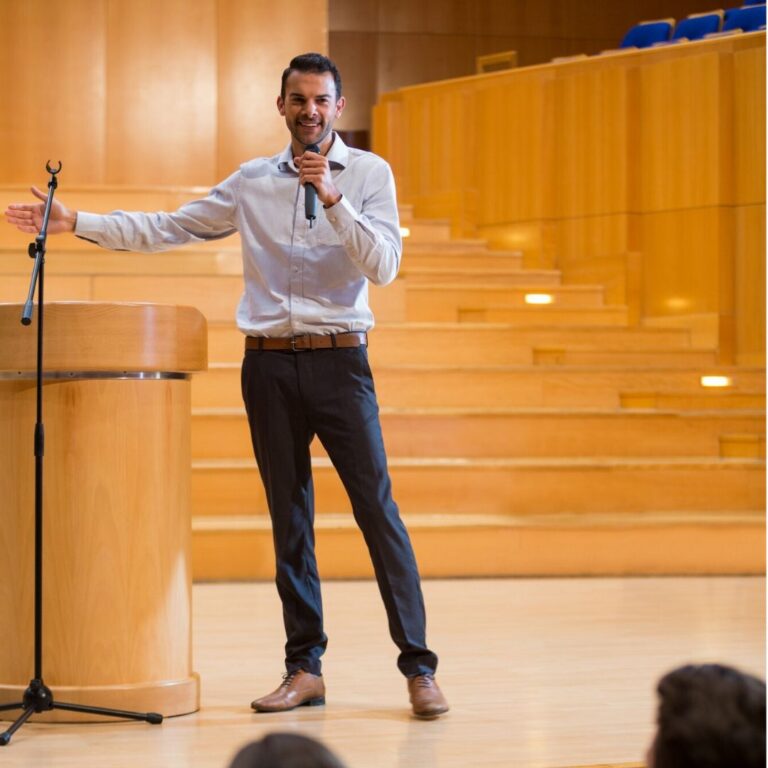
- Home
- Master Listening Skills for Better Conversations Today
- Shelby Academy
- 0 Comments
- January 7, 2025

Master Listening Skills for Effective Conversations
Listening is an integral part of communication that is often overlooked. Mastering listening skills can transform your conversations, leading to better understanding, stronger relationships, and improved outcomes in personal and professional settings. This blog explores strategies to master listening skills for effective conversations.
Importance of Listening Skills
Listening skills are the foundation of meaningful communication. They help us understand others, respond appropriately, and foster mutual respect.
Enhances Understanding
Active listening ensures you fully comprehend the speaker’s message. This skill minimizes misunderstandings, enabling effective problem-solving and collaboration. By focusing on what is being said without distractions, you can grasp both verbal and non-verbal cues.
Builds Stronger Relationships
Listening is a cornerstone of trust. When people feel heard, they are more likely to open up and engage with you. This creates a positive dynamic in relationships, whether personal or professional.
Improves Professional Success
In the workplace, listening skills are highly valued. They help in understanding instructions, resolving conflicts, and fostering teamwork. Effective listeners are often seen as empathetic leaders and valuable team members.
Barriers to Effective Listening
Understanding the barriers to effective listening is crucial to overcoming them. These obstacles can prevent meaningful communication and lead to frustration.
Distractions
External noise, multitasking, or even wandering thoughts can disrupt active listening. Identifying and minimizing distractions is key to improving focus.
Prejudices and Assumptions
Prejudging the speaker or assuming you already know what they will say can hinder your ability to listen. Approach every conversation with an open mind to truly understand the perspective being shared.
Emotional Reactions
Strong emotions like anger or frustration can cloud your judgment and impede listening. Developing emotional intelligence can help manage reactions and maintain composure during conversations.
Techniques to Improve Listening Skills
Adopting effective techniques can help you become a better listener, enhancing both personal and professional interactions.
Practice Active Listening
Active listening involves fully engaging with the speaker. Maintain eye contact, nod to show understanding, and provide verbal affirmations like “I see” or “That makes sense.” Avoid interrupting and wait for pauses to ask clarifying questions.
Focus on Non-Verbal Cues
Pay attention to the speaker’s body language, tone, and facial expressions. These cues provide additional context and can reveal emotions or nuances that words alone cannot convey.
Paraphrase and Summarize
Reiterating what the speaker has said in your own words shows that you have understood their message. Summarizing key points helps clarify and reinforce the conversation’s purpose.
Benefits of Mastering Listening Skills
Mastering listening skills can have profound impacts on various aspects of your life, fostering growth and collaboration.
Enhances Conflict Resolution
Effective listening helps in resolving conflicts by understanding all perspectives involved. This skill allows for finding mutually beneficial solutions and reducing misunderstandings.
Boosts Personal Development
Listening helps you learn from others, gain new insights, and broaden your knowledge. It also fosters self-awareness as you reflect on feedback and advice shared by others.
Strengthens Emotional Intelligence
Listening improves empathy and emotional intelligence, allowing you to connect deeply with others. It builds your ability to manage relationships and navigate social complexities.
Practical Exercises to Develop Listening Skills
To master listening skills, consistent practice is essential. Incorporate these exercises into your daily routine to enhance your listening abilities.
Mindful Listening
Practice mindfulness by focusing entirely on the speaker without letting your thoughts wander. Meditation can help improve your ability to stay present during conversations.
Role-Playing Scenarios
Engage in role-playing exercises to simulate real-life conversations. This helps you practice active listening, ask relevant questions, and respond thoughtfully.
Feedback Sessions
Request feedback from colleagues, friends, or family about your listening skills. Constructive criticism can help identify areas for improvement and track progress over time.
Conclusion
Mastering listening skills is essential for effective conversations. By understanding their importance, overcoming barriers, and practicing proven techniques, you can enhance your communication abilities and build stronger connections. Remember, listening is not just about hearing words but truly understanding and valuing the speaker’s perspective. Start your journey today to become a more effective listener and transform your conversations.
Section Title
Confidence Exercises for English Speaking Speaking English confidently can be a challenge for many...
Tips for Confident English Conversations Speaking English with confidence is essential for effective...
Overcome Fear of Speaking English Enhance your English communication skills to impress clients and...
Impress Clients with English Communication Enhance your English communication skills to impress...
Ace Job Interviews with Business English Boost your confidence and excel in job interviews with...
Negotiate Successfully in Business English Master the art of negotiation in Business English! Learn...
Network Effectively with Business English Learn to network effectively using Business English!...
Polish English for Presentations Delivering a presentation in English requires clarity, confidence...
Key Business English Phrases for Professionals Effective communication in the business world...










